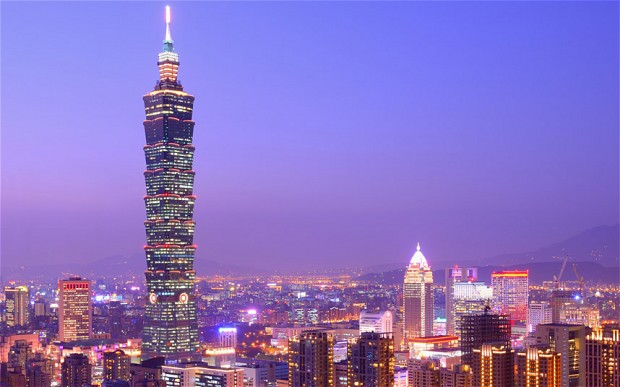Hong Kong, Macao, and Taiwan Should Address Structural Reforms

Please note that we are not authorised to provide any investment advice. The content on this page is for information purposes only.
The old growth engines of Hong Kong, Macao and Taiwan are decelerating. The new ones are predicated on deeper economic ties with China.
Recently, the governing Kuomintang suffered a landslide defeat in local elections in Taiwan, China; the worst electoral setback since KMT’s coming to power in 1949. As a result, President Ma Ying-jeou named a new cabinet head, even as he resigned as KMT chairman.
The old growth engines of Hong Kong, Macao and Taiwan are decelerating. The new ones are predicated on deeper economic ties with China.
Recently, the governing Kuomintang suffered a landslide defeat in local elections in Taiwan, China; the worst electoral setback since KMT’s coming to power in 1949. As a result, President Ma Ying-jeou named a new cabinet head, even as he resigned as KMT chairman.
In Hong Kong, the future of Occupy Central divides protestors, which almost paralyzed Hong Kong’s financial district in the fall. As tensions have lingered, the movement has lost public support, however.
As Macao has been preparing to welcome president Xi Jinping to lead celebrations for the 15th anniversary of its return to the mainland, Macao Chief Executive Dr. Fernando Chui Sai-on has been told to address its dependency on casino revenues.
In the West, these events have been reported as the dissatisfaction of the residents of Taiwan, Hong Kong and Macao with mainland ties. Realities are more nuanced.
Table of Contents
Unique identities, but deep ties with China
Understandably, the residents of Hong Kong, Macao and Taiwan feel proud of their distinctive identity, after decades, even centuries of colonial rule.
But set aside the issue of identity and ask the residents of Hong Kong and Macao would they be better off without China, and most would respond negatively. Ask the people of Taiwan, if they would prefer to cut ties to the mainland, and you would get the same response.
The simple reality is that today Hong Kong, Macao and Taiwan are more integrated with the mainland than ever before.
China and Hong Kong together absorb more than 40 percent of all exports from Taiwan. In turn, Taiwan’s impressive current account surplus includes massive private sector investment in China, while its financial sector is increasingly exposed to Chinese financial institutions.
The mainland and Hong Kong absorb more than 70 percent of Macao exports and more than half of its imports. Macao would not survive without millions of visitors from the mainland and Hong Kong.
More than half of Hong Kong’s exports go to China and over 75 percent of its inbound foreign direct investment and foreign visitors come from China.
Identity matters but so do living standards.
Deferred reforms, diversification, pro-growth policies
In the past, Hong Kong, Macao and Taiwan have benefited hugely from the mainland’s expansion, through trade, investment, tourism and financial services. These growth rates are reflected in the compound annual growth rate (CAGR), which was 3.1 percent for Hong Kong and 2.6 percent for Taiwan during the time period.
Starting from a far lower base, China’s growth rate was 14.9 percent, which is more than 10 percent faster. This extraordinary growth record is now supporting China’s structural reforms amid the shift of its growth model toward innovation and consumption.
However, the same does not apply to Hong Kong, Macao and Taiwan. In each case, growth model remains similar and structural reforms have been deferred.
Hong Kong continues to rely mainly on its financial sector, even as it is struggling with soaring property markets, inadequate housing, rising inequality and aging population.
Although Macao has become the world’s largest gaming center, it has failed to diversify its industrial structure, even though gaming revenues will moderate and an aging population means rising spending needs. Macao’s large financial sector is almost 250 percent of its GDP, dominated by banks, foreign owned, and vulnerable to external shocks.
Taiwan’s sustained growth is predicated on the 2010 Economic Cooperation Framework Agreement (EFCA) with China and its complement, the Cross-Strait Service Trade Agreement (CSSTA), which would open mainland’s industries to Taiwan’s investment.
To thrive in the future, Hong Kong and Macao need structural reforms and deeper integration with Guangdong and the Pearl River Delta region, while Taiwan seeks deeper integration with the mainland as a whole.
The risks of complacency
The challenge for China, Hong Kong, Macao and Taiwan is to advance economic integration, while respecting unique identities, which reflect the resilience of Chinese culture and local responses to the history of Western colonialism.
Conversely, the risk of complacency – deferred structural reforms, inadequate diversification and decelerating growth – would be erosion of economic growth and falling living standards.
That is not in the economic interest of Hong Kong, Macao and Taiwan, for even unique identities thrive on sustained living standards.
The Risks of Complacency for Hong Kong, Macao, and Taiwan is republished with permisson from Dr. Dan Steinbock




